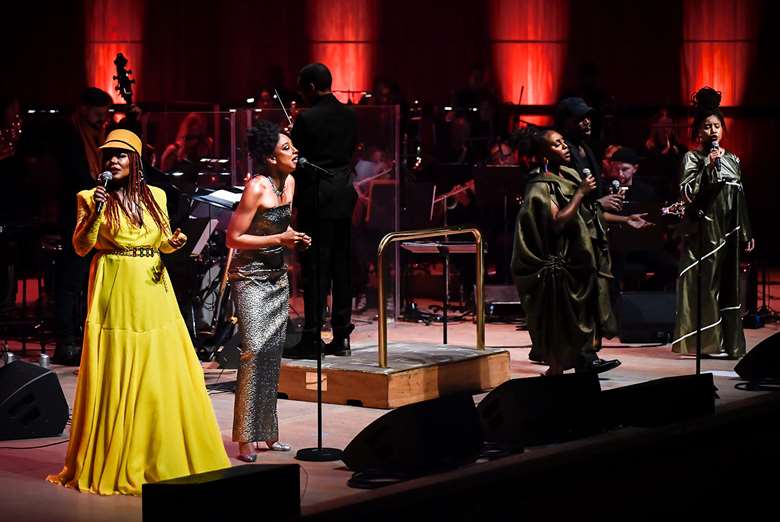China Moses, Laura Mvula and Corinne Bailey-Rae make Mississippi Goddam! dazzle at Southbank
Kevin Le Gendre
Tuesday, February 4, 2025
The centrepiece of the Southbank Centre’s inaugural partnership with the Montreux Jazz Festival saw vocal sparks fly as an all-star line-up saluted Nina Simone in style


Register now to continue reading

Thank you for visiting Jazzwise.co.uk. Sign up for a free account today to enjoy the following benefits:
- Free access to 3 subscriber-only articles per month
- Unlimited access to our news, live reviews and artist pages
- Free email newsletter


